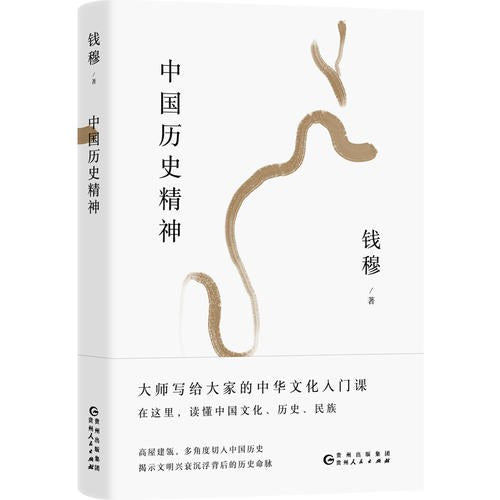WULOLIFE
《中国历史精神》丛书: 钱穆谈中国历史文化 出版社: 贵州人民出版社
《中国历史精神》丛书: 钱穆谈中国历史文化 出版社: 贵州人民出版社
Couldn't load pickup availability
Description
作者简介 · · · · · ·
钱穆(1895-1990),字宾四,江苏无锡人。九岁入私塾,1912年辍学后自学,并任教于家乡的中小学。1930年经顾颉刚推荐,聘为燕京大学国文讲师,后历任北京大学、清华大学、西南联大、齐鲁大学,武汉大学、华西大学,四川大学、江南大学等学校教授。1949年去香港,创办新亚书院。1967年定居台湾。著有学术著作六十余种。
钱穆编著的《中国历史精神(新校本)》讲述了:中国历史源远流长,其间治乱更巷,波谲云诡,常令治史者望洋兴叹,有无从下亦每苦于重点之难以把握,以故望而却步。钱先生以其渊博之史学涵养、敏锐之剖析能力在《中国历史精神(新校本)》中分别讲述史学精神和史学方法、中国历史上的玫治、经济、国防、教育、地理与人物、道德精神等七大块内容,让读者得窥中国历史文化之堂奥,深入了解五千年来历史精神之所在,从而认清此一代中国人所背负之历史使命及应当努力之方向。
人活着的意义是什么?
一个人的一辈子并不是仅仅指你出生到死亡这几十年。人的生命应该放在历史的框架中考虑,即你的生命实际上并不是由你出生那天给开始的。因为你作为个体所具有有的特定的思维模式并不是你自己凭空创造的,而其实是你之前几千年历史的结果。前人的思想通过你所经历的家庭和你读过的书,甚至你周围的人的言行对你施加了影响,最终塑造了你的个人。同理,你的生命也不应该终止于你死去的那一天。你在活着的时候,你的言行必然会影响你周围的人,从而成为历史的一部分,而终影响后人。所以你即使死了,你的生命或多或少仍然存在在人的心中。因此,一个人的个体与一个社会的历史是始终互相交织的。
钱穆认为,中国与西方文化的不同那么个人获得“不朽”的关键在于“听上帝的话”,这样最终可以升入天堂从而“灵魂不朽”。因此,西方文化主要在于个人与神的关系。而中国的文化则更与历史的关系。因此,中国文化不需要超脱于人类社会之上的神,也不存在灵魂肉体二元论. “不朽”的唯一途径是在于对于中国的历史做出正面的影响(即“立德”)从而使自中国文化给人们的“不朽”指出了一条异于西方的道路,即你可以通过对他人的内心进行感召从而在历史中达到“不朽”。
钱穆甚至用他的观点重新解释了基督教耶稣的故事。他的观点认为,基督教传统中耶稣因为爱世人而上十字架并且其爱的精神永远留活着。他的“复活”并不是他个人肉体的复活,而是他在人们心中的复活。所以从此以后,耶稣就在人类历史上“不朽“了。这个理解显然和传统基督教的论点不同,但是逻辑上同Note:
